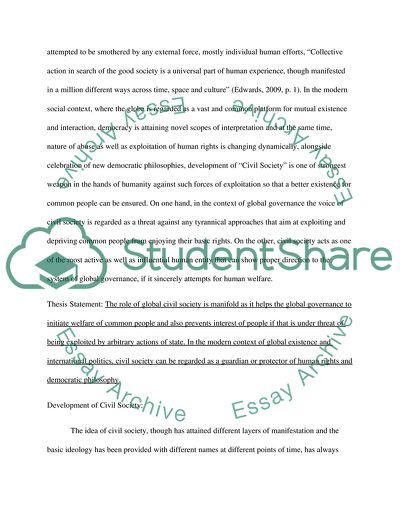Cite this document
(Role of Global Civil Society in Global Governance Assignment, n.d.)
Role of Global Civil Society in Global Governance Assignment. Retrieved from https://studentshare.org/sociology/1736992-what-role-does-global-civil-society-play-in-global-governance-provide-support-for-your-argument-with-recent-world-politics-events
Role of Global Civil Society in Global Governance Assignment. Retrieved from https://studentshare.org/sociology/1736992-what-role-does-global-civil-society-play-in-global-governance-provide-support-for-your-argument-with-recent-world-politics-events
(Role of Global Civil Society in Global Governance Assignment)
Role of Global Civil Society in Global Governance Assignment. https://studentshare.org/sociology/1736992-what-role-does-global-civil-society-play-in-global-governance-provide-support-for-your-argument-with-recent-world-politics-events.
Role of Global Civil Society in Global Governance Assignment. https://studentshare.org/sociology/1736992-what-role-does-global-civil-society-play-in-global-governance-provide-support-for-your-argument-with-recent-world-politics-events.
“Role of Global Civil Society in Global Governance Assignment”. https://studentshare.org/sociology/1736992-what-role-does-global-civil-society-play-in-global-governance-provide-support-for-your-argument-with-recent-world-politics-events.


